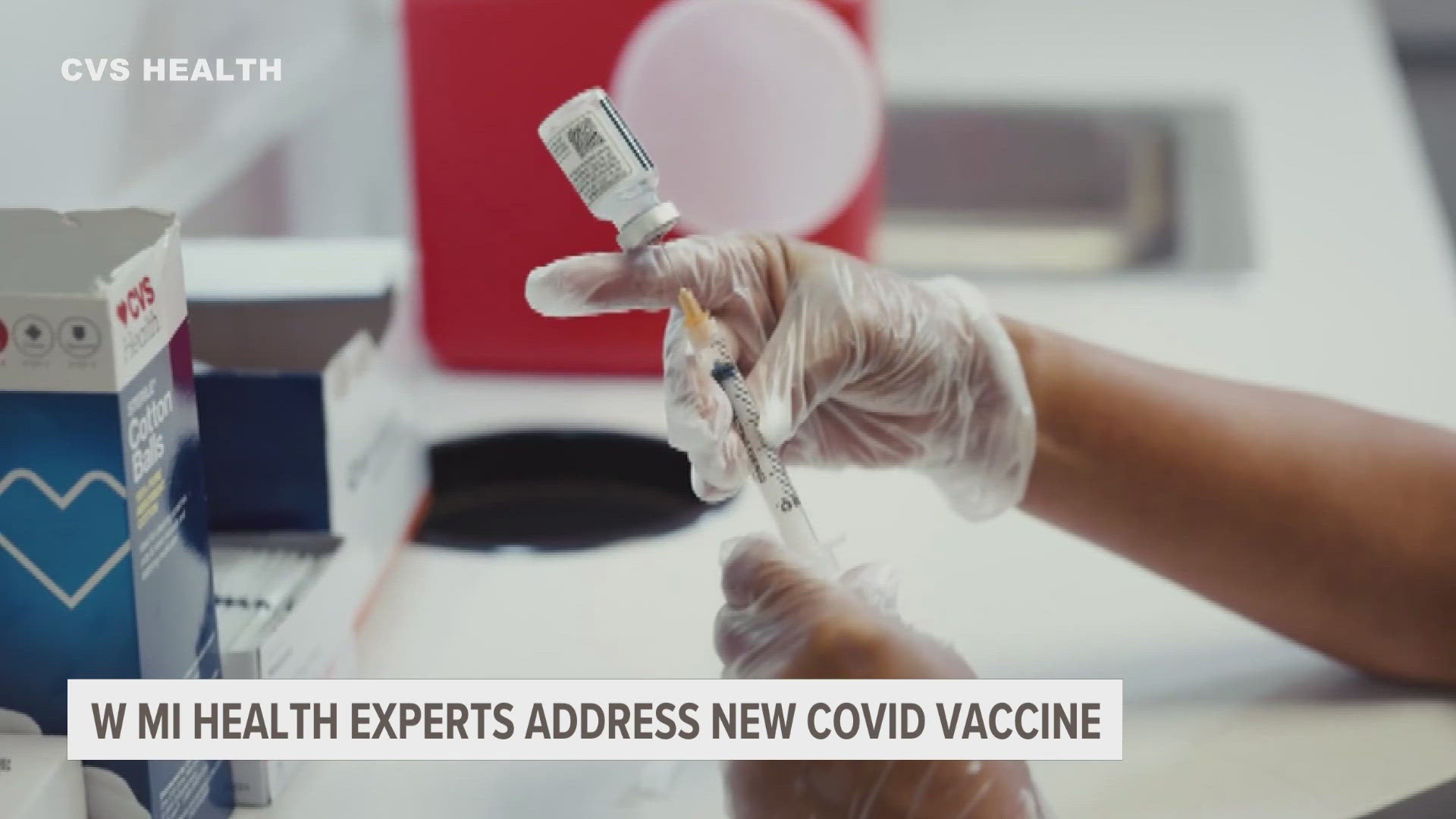GRAND RAPIDS, Mich. — Here is the latest information on the coronavirus in Michigan, including the number of cases state offices report and other updates affecting West Michigan.
Tuesday's cases
The Michigan Department of Health and Human Services reports 584 daily cases of COVID-19, making the state total 70,306.
There were six deaths recorded Tuesday; the death toll is now 6,081.
The latest data on recoveries is from Friday, July 10. It shows that 53,867 people have recovered from the virus. The state updates this data every Saturday. A recovery is counted as anyone who is 30 days out from the onset of their symptoms.
Hospitalizations have increased slightly. There are 366 COVID-19 patients in Michigan hospitals, 99 on ventilators, and 182 in critical care as of July 10.
Michigan is reporting the number of cases at long term care facilities. That data can be seen here.
Whitmer extends emergency declaration
Gov. Gretchen Whitmer said Tuesday that every region in Michigan has seen an uptick in new COVID-19 cases over the past three weeks and because of this she has extended an emergency and disaster declaration until Aug. 11.
The governor first issued a state of emergency on March 10 when the first cases of COVID-19 were found in Michigan. The declaration allows Whitmer to issue executive orders to respond to the pandemic.
Monday's cases
In the state's Monday update, the Michigan Department of Health and Human Services reported 384 new cases, bringing the total number of COVID-19 cases to 69,722.
There were seven new deaths reported, bringing the death toll to 6,075.
State recommendations for COVID-19
People with COVID-19 have reported a wide range of symptoms, ranging from mild to severe illnesses. Symptoms may appear 2-14 days after exposure to the virus, according to the CDC. The symptoms include:
- Fever
- Cough
- Shortness of breath
- Chills
- Repeated shaking with chills
- Muscle pain
- Headache
- Sore throat
- New loss of taste or smell
- Nausea or vomiting
- Diarrhea
*Note: This list does not include all possible symptoms. It will be updated as the CDC and health officials learn more about the virus.
The best prevention for viruses, such as influenza, the common cold or COVID-19 is to:
- If you think you have been exposed to COVID-19, call your health care provider. If you do not have a health care provider, call the nearest hospital.
- Wash your hands often with soap and warm water for 20 seconds. If not available, use hand sanitizer.
- Avoid touching your eyes, nose, or mouth with unwashed hands.
- Cover your mouth and nose with a tissue or upper sleeve when coughing or sneezing.
- Avoid contact with people who are sick.
- If you are sick, stay home, and avoid contact with others.
- Stay at least 6 feet away from others when in a public setting.
More stories on 13 ON YOUR SIDE:
- President Trump's team eyes school funds boost in next coronavirus aid bill
- What is contact tracing, and how does it work with COVID-19?
- Not wearing a mask can be a $500 fine, but police focus on education first
- Eastern Michigan preps for a school year like no other
- Report: Military's COVID-19 infection rate growing at twice nationwide level
- Multiple COVID-19 cases linked to 'large party' near Ann Arbor
►Make it easy to keep up to date with more stories like this. Download the 13 ON YOUR SIDE app now.
Have a news tip? Email news@13onyourside.com, visit our Facebook page or Twitter. Subscribe to our YouTube channel.



